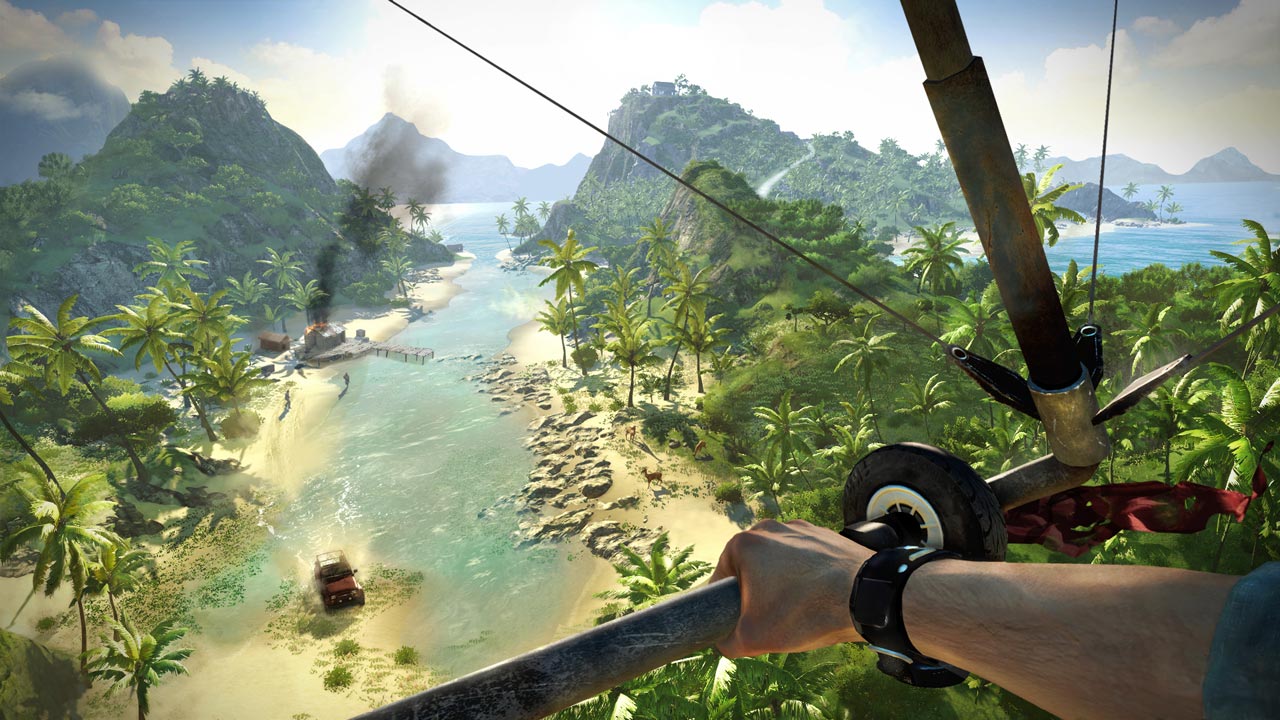
Charting the Unknown: The Allure of Exploration in Adventure Games
Adventure games, from their text-based beginnings to their modern, graphically rich iterations, have always held a special appeal. While narrative depth, intricate puzzles, and compelling characters are often cited as hallmarks of the genre, one element stands out as a crucial ingredient: exploration. The thrill of uncovering hidden pathways, deciphering ancient secrets, and simply getting lost in a meticulously crafted world is a powerful draw, and adventure games that masterfully integrate exploration often resonate with players long after the credits roll.
This article delves into the core of exploration within adventure games, examining its various forms, its significance in shaping the player experience, and highlighting exemplary titles that have pushed the boundaries of interactive discovery.
The Essence of Exploration: More Than Just Walking Around
Exploration in adventure games transcends the mere act of traversing a landscape. It’s about actively engaging with the environment, probing its mysteries, and uncovering its secrets. It’s about:
- Environmental Storytelling: The world itself becomes a narrator, whispering tales of past events, forgotten civilizations, and the lives of those who came before. Crumbling architecture, faded murals, discarded tools – all contribute to a rich tapestry of information that the player pieces together.
- Discovery and Reward: Finding a hidden item, unlocking a secret area, or solving a cryptic puzzle leads to a tangible sense of accomplishment and often provides access to new areas, abilities, or narrative threads. This positive reinforcement loop encourages further exploration.
- Atmosphere and Immersion: A meticulously crafted environment, rich with detail and evocative sounds, draws players deeper into the game world. The act of exploration becomes a sensory experience, allowing them to feel truly present in the digital realm.
- Freedom and Agency: Exploration provides a sense of freedom and agency, allowing players to chart their own course and uncover the story at their own pace. This contrasts with more linear narratives, where the player is simply guided from point A to point B.
- Unveiling the Lore: Exploration often serves as a key to unlocking the lore of the game world. By discovering ancient texts, interacting with eccentric characters, and piecing together fragments of information, players gain a deeper understanding of the world’s history, culture, and mythology.
Types of Exploration in Adventure Games
Exploration manifests in diverse forms within the genre, each offering a unique flavour and challenge:
- Linear Exploration: This involves navigating a relatively constrained path, but with opportunities to deviate slightly to uncover hidden items or secrets. While the overall direction is predetermined, players can still feel a sense of discovery through careful observation and interaction. Games like Uncharted and Tomb Raider often employ this approach.
- Hub-Based Exploration: The player operates from a central hub area, from which they can venture out to explore interconnected zones. This allows for a greater degree of freedom and encourages players to revisit locations as they acquire new abilities or information. Metroid Prime and Batman: Arkham Asylum are prime examples.
- Open-World Exploration: The game world is vast and largely unrestricted, allowing players to freely roam and discover its secrets at their own pace. This offers the greatest sense of freedom and discovery, but can also be overwhelming if not properly designed. The Elder Scrolls series and The Legend of Zelda: Breath of the Wild are iconic examples.
- Abstract Exploration: Exploration can also occur within more abstract or surreal environments, where the rules of reality are bent or broken. This can involve navigating dreamscapes, exploring the inner workings of a machine, or delving into the depths of the human psyche. Games like Psychonauts and What Remains of Edith Finch exemplify this type of exploration.
Exemplary Titles: Showcasing the Power of Exploration
Numerous adventure games have masterfully integrated exploration into their core gameplay loop, leaving a lasting impression on players. Here are a few noteworthy examples:
- Myst (1993): A landmark title that defined the adventure game genre, Myst emphasizes non-linear exploration and intricate puzzle-solving. Players are stranded on a mysterious island, tasked with uncovering its secrets and unraveling the fate of its inhabitants. The game’s stunning visuals and atmospheric sound design create a deeply immersive experience, encouraging players to meticulously examine every nook and cranny of the island.
- Grim Fandango (1998): This LucasArts classic blends film noir aesthetics with Mexican folklore, creating a unique and unforgettable world. Players take on the role of Manny Calavera, a travel agent for the dead, as he embarks on a perilous journey through the Land of the Dead. Exploration is key to solving puzzles and progressing the story, with each location brimming with quirky characters, hidden secrets, and witty dialogue.
- The Longest Journey (1999): This point-and-click adventure game features a richly detailed world, a compelling narrative, and memorable characters. Players control April Ryan, a young art student who discovers she is a Shifter, capable of traveling between two parallel worlds: Stark, a technologically advanced society, and Arcadia, a realm of magic and fantasy. Exploration is crucial to understanding the delicate balance between these worlds and preventing a looming cataclysm.
- Shadow of the Colossus (2005): This action-adventure game features a vast and desolate landscape, punctuated by colossal creatures known as Colossi. Players control Wander, a young man who seeks to resurrect a deceased woman by defeating these giants. Exploration is a core mechanic, as players must traverse the sprawling environment to locate each Colossus and uncover their weaknesses. The game’s minimalist narrative and breathtaking visuals create a powerful sense of isolation and wonder.
- Subnautica (2018): This survival adventure game plunges players into an alien ocean, where they must scavenge resources, build bases, and uncover the secrets of a lost civilization. Exploration is paramount to survival, as players must venture into the depths to find rare materials, discover new blueprints, and unravel the mysteries of the planet. The game’s stunning underwater environments and sense of constant danger create a thrilling and immersive experience.
- Outer Wilds (2019): This critically acclaimed adventure game features a unique time-loop mechanic, allowing players to explore a miniature solar system that is constantly resetting. Players must unravel the mysteries of an ancient alien race and prevent the impending destruction of the universe. Exploration is central to the game’s design, as players must piece together fragments of information scattered throughout the solar system to uncover the truth. The game’s innovative gameplay mechanics and thought-provoking narrative make it a truly unforgettable experience.
The Future of Exploration in Adventure Games
As technology continues to evolve, the possibilities for exploration in adventure games are virtually limitless. Virtual reality (VR) offers the potential for truly immersive and interactive environments, while procedural generation can create vast and dynamic worlds that are constantly evolving. Cloud gaming can allow for seamless transitions between different locations and even different games, blurring the lines between traditional gaming experiences.
Furthermore, the increasing emphasis on player agency and emergent gameplay is likely to lead to more open-ended and unpredictable exploration experiences. Players will be given more tools and opportunities to shape their own narratives and interact with the world in meaningful ways.
Conclusion: The Enduring Appeal of Discovery
Exploration is an integral component of the adventure game genre, providing players with a sense of freedom, discovery, and immersion. By meticulously crafting detailed environments, weaving compelling narratives, and offering rewarding gameplay mechanics, developers can create unforgettable experiences that resonate with players long after the game is finished. As technology continues to advance, the future of exploration in adventure games is bright, promising even more immersive, interactive, and rewarding experiences for players to discover. The allure of the unknown, the thrill of uncovering secrets, and the simple joy of getting lost in a meticulously crafted world will continue to drive the evolution of this beloved genre for years to come. The journey, after all, is often more rewarding than the destination.

